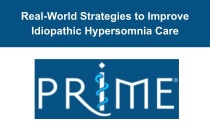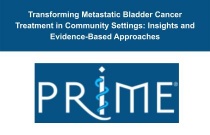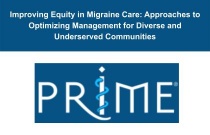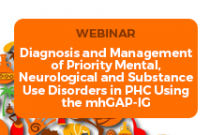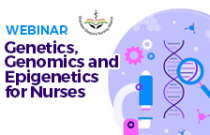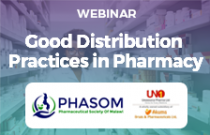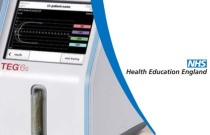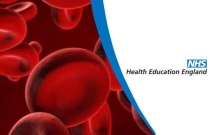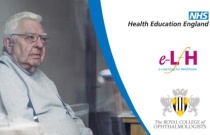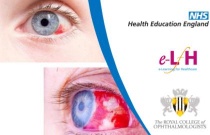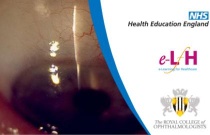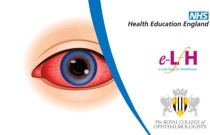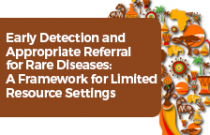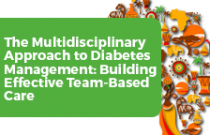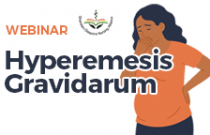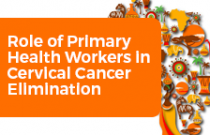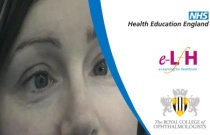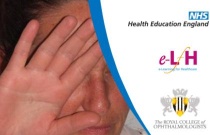Real-World Strategies to Improve Idiopathic Hypersomnia Care
Thomas Scammell, Rachel Marie E. Salas, Gabriela Andonie, Joyce M Knestrick, Soundarya Gowda
0.50 Hours
In this engaging video, leading experts in idiopathic hypersomnia (IH) will explore strategies to improve coordination between neurology and sleep disorder specialty care teams, including best practices for screening, referral, and treatment. Key insights from recent provider workshops will be examined. The faculty will revie....
Transforming Metastatic Bladder Cancer Treatment in Community Settings: Insights and Evidence-Based Approaches
Daniel P Petrylak, Thomas Westbrook, Richa Bhattara, Annette Sophin, Richa Bhattarai
0.50 Hours
Tune into this exciting on-demand video to explore real-world challenges in the first-line treatment of metastatic urothelial cancer (mUC) and uncover key findings from a quality improvement (QI) initiative. Learn how evolving guideline recommendations for frontline treatment and sequencing can be integrated into clinical workfl....
Improving Equity in Migraine Care: Approaches to Optimizing Management for Diverse and Underserved Communities
Jessica Ailani, Jessica Kiarashi, Soundarya Gowda, Annette Sophin, Joyce M Knestrick
1.00 Hours
Migraine affects approximately 40 million individuals in the United States and has a significant impact on quality of life. Despite high prevalence, migraine remains underdiagnosed and undertreated, particularly in diverse and underserved communities as these populations face barriers to care that contribute to worse clinical ou....
Introduction to Disasters and Disaster Preparedness in Global Settings
Debra Weiner, Dr. Amos Solomon, Amyna Husain, Mark Baker, Lisa Umphrey, Wentiirim Annankra, Samuel Borer, David Schonfeld, Tania Ahluwalia, and Dr. Dan Alaro
Disasters, natural or man-made, are increasingly common around the world. From climate change to armed conflict and refugee settings, emergency situations can greatly impact any health system. Children are especially vulnerable in these situations. First responders and child health providers are often ill-equipped to provide car....
Diagnosis and Management of Priority Mental, Neurological and Substance Use Disorders in Primary Health Care using the mhGAP-IG
Dr Mary Bitta
This webinar introduces participants to the WHO Mental Health Gap Action Programme Intervention Guide (mhGAP-IG) as a practical tool for strengthening mental health care in primary health settings. It focuses on the diagnosis and management of priority mental, neurological, and substance use (MNS) disorders, equipping frontline....
Mastering newborn devices: a practical guide for level II hospital care
Prof Elizabeth Molyneux, Edith Gicheha, Dr Josephine Langton, Christina Samuel, Prof June Madete
The course equips health care professionals with the practical knowledge and hands on confidence needed to safely and naturally operate and maintain essential newborn devices in level 2 newborn care facilities. These essential devices include; 1. Respiratory support devices: • Oxygen concentrator • Oxygen cylinder • Oxyg....
Genetics, Genomics and Epigenetics for Nurses
Associate Professor Omanand Koul
Nurses need to know how our genes and inherited traits manifest themselves and affect our physiology. An understanding of gene function helps in understanding new therapeutic approaches for diseases that they see in patients. The knowledge about inheritance patterns of single-gene and multigene disorders greatly adds to their ab....
Good Distribution Practices in Pharmacy
Mr Cosmas Sawamba
This webinar aims at defining and discussing the concept of Good Distribution Practices in pharmacy practice.
Module 2: Use of Plasma Components and Managing Haemorrhage in Different Scenarios
NHS, eIntegrity, elfh
This module will look to describe the principles of initial empirical and later targeted use of plasma components in major haemorrhage. You will also compare the features and management of major haemorrhage occurring in different clinical scenarios (trauma, medical, obstetric).
Use of Anti-D Immunoglobulin in Pregnancy
NHS, eIntegrity, elfh
This module is for healthcare professionals caring for pregnant women whose blood group is D negative, during their pregnancy, at and following delivery. We recommend that this module is completed alongside the other transfusion training modules – Blood Transfusion Training [BTT], Consent, Essential Transfusion Practice and B....
Module 1: Major Haemorrhage and Universal Components
NHS, eIntegrity, elfh
In this module, you will look to define what a major haemorrhage is and identify potential settings in which this might occur. You'll also gain an increased understanding of the key components of a major haemorrhage protocol and identify the role you might play whether you are clinical or lab based in this.
SHOT - Module 2 - Reporting to SHOT
NHS, eIntegrity, elfh
This module will provide an overview of the reporting categories used by SHOT and will allow you to explore real case studies that will help you to choose the correct reporting category for a range of situations. The module also covers the investigation of transfusion-related incidents and how these are reported.
Transient Visual Loss / Transient Visual Disturbances
Samira Anwar Bhatti and Nagini Sarvananthan
This session describes how to evaluate and investigate the patient with transient loss of vision or transient visual disturbances.
How to Take a History Red Eye
Rosemary Robinson
This session is designed to help you take a focused history from a patient presenting with an acute red eye and to help form a differential diagnosis, even before you examine the eye.
The Role and Indications for Glaucoma Surgery
David Broadway
This session will explain the background and consideration taken for glaucoma surgery in the glaucoma treatment paradigm.
Optic Neuropathy
James Benzimra and Leo Feinberg
This session covers the assessment, investigation and causes of optic neuropathy and optic atrophy.
WEBINAR: Renewed Focus on Skin Neglected Tropical Diseases
Purity Wambui
Skin Neglected Tropical Diseases (NTDs) are a group of conditions that primarily affect the skin, often leading to chronic health issues, stigma, and economic hardship. Recent global attention on skin NTDs stems from their visible impact, contribution to poverty cycles, and their inclusion in the WHO’s 2030 NTD Roadmap. The e....
Early Detection and Appropriate Referral for Rare Diseases: A Framework for Limited Resource Settings
Dr Mercy Wanjala
This webinar will explore the complexities of early detection and appropriate referral for rare diseases in limited-resource settings. Participants will gain insights into key challenges, including limited awareness, diagnostic constraints, and socio-cultural factors. The session will highlight practical strategies such as enhan....
WEBINAR: Mpox Disease
Dr. Daniel Kaonga
In July, 2022 WHO declared mpox outbreak a public health emergency. Recently, there have been rise in mpox cases in Malawi and globally. This webinar aims at uncovering aspects related to spread of this disease as well as on how to contain it.
The Multidisciplinary Approach to Diabetes Management: Building Effective Team-Based Care
Ms Venus Mushininga, BPharm, MBA, MPH
This webinar explores the importance of a multidisciplinary approach in managing diabetes. It highlights how collaborative care involving the patient, physicians, pharmacists, nurses, dietitians, psychologists and other health professionals can improve patient outcomes, adherence, and quality of life. Practical strategies for im....
WEBINAR: Hyperemesis Gravidarum
Katrina Johnson MSN/ED, RN, C-EFM, RNC-OB
This webinar explores hyperemesis gravidarum, a severe form of pregnancy-related nausea and vomiting that can lead to dehydration, electrolyte imbalance, and maternal complications. Participants will learn to recognize key symptoms, assess severity, and apply evidence-based treatment strategies including fluid management, nutrit....
Role of Primary Health Workers in Cervical cancer Elimination
Dr Valerian Mwenda; MBChB, M.Sc., PhD
This webinar will explore the concept and rationale behind cervical cancer elimination, addressing both the challenges and opportunities in our region. We will also discuss the essential role Primary Health Care Workers (PHCWs) play in driving efforts to prevent and reduce the impact of this disease.
Neurological Causes of Abnormal Eye Movements
Steve Madill
In this session, we will discuss the concept of neurological impairment of complex eye movement including core examination techniques allowing localisation of lesions. Symptoms and examination findings specific for individual conditions will be covered in the appropriate sections.
WEBINAR: The Multidisciplinary Approach to Diabetes Management: Building Effective Team-Based Care
Ms Venus Mushininga, BPharm, MBA, MPH
This webinar explores the importance of a multidisciplinary approach in managing diabetes. It highlights how collaborative care involving the patient, physicians, pharmacists, nurses, dietitians, psychologists and other health professionals can improve patient outcomes, adherence, and quality of life. Practical strategies for im....
Optic Neuritis
Carmel Noonan
This session covers how to recognise, investigate and manage optic neuritis and its relationship to other diseases.
